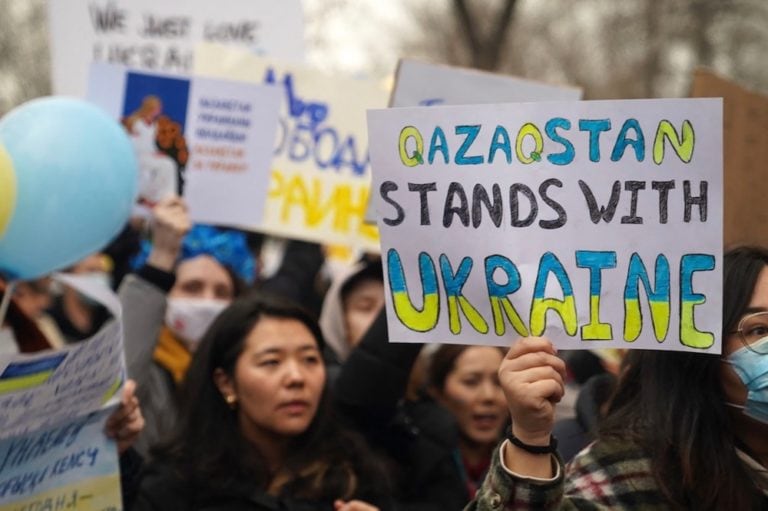(WiPC/IFEX) – WiPC is seriously concerned about the suspicious circumstances surrounding the death of Emin Usman on 28 February 2001 and is calling on the authorities to launch a full investigation. Usman was arrested on 11 February, while driving near his home outside Tashkent, and held in the basement of the Ministry of Internal Affairs […]
(WiPC/IFEX) – WiPC is seriously concerned about the suspicious circumstances surrounding the death of Emin Usman on 28 February 2001 and is calling on the authorities to launch a full investigation.
Usman was arrested on 11 February, while driving near his home outside Tashkent, and held in the basement of the Ministry of Internal Affairs (MVD) headquarters. He was only permitted to see his lawyer on one occasion, five days after the arrest, when MVD prosecutor Abdumutal Zakrullaev informed him that his client was accused under article 244-1 of the criminal code with “distributing materials considered to be dangerous to public security”. According to human rights activists within Uzbekistan, Usman was suspected of translating pamphlets and articles for a banned Islamic organisation, although this allegation is denied by his associates. It is also believed that Usmanâs name appeared on the Uzbek security serviceâs “black list” in relation to his religious beliefs and activity amongst ethnic Uygurs.
On 28 February, Usmanâs relatives were informed that he had committed suicide, and the body was brought to his home on 1 March. Security forces blocked the road, prevented people from entering his home, and did not allow the family to wash or look over the body. He was buried under tight security early that morning, the official cause of death registered as “brain tumour.” Usmanâs strong religious beliefs, combined with the unorthodox and clandestine nature of official proceedings, suggest that his death was not suicide but the result of torture. Members of his family claim to have seen bruises covering the body and a wound to the back of the head.
Usman was a prominent writer and head of the Uygur cultural centre in Tashkent. He published more than twenty books in Russian, Uzbek, and Uygur, in addition to numerous articles and translations.
Torture of political detainees in Uzbekistan is common place. A recent report published in December 2000 by Human Rights Watch, “Uzbekistan: And it was Hell all Over Again”, states that “Persons detained by police in Uzbekistan are routinely subjected to physical and psychological abuse, often from the initial moments of their arrest. Mounting numbers of deaths in pre- and post-conviction detention facilities over the past two years attest to the brutality of the treatment meted out against detainees and prisoners”.
WiPC also calls for the release of Mamadali Mahmudov, and two other writers detained since March 1999 (see IFEX alerts of 25 and 19 August 1999). Mahmudov has testified to having been tortured under interrogation including beatings, electric shocks and the threatened rape of female family members.
(Sources: Information Centre for Human Rights in Central Asia, BBC World Service, Human Rights Watch)
Recommended Action
Send appeals to authorities:
- expressing alarm over the growing number of deaths in custody in Uzbekistan, apparently as a result of torture
- noting that the death of writer Usman is of particular concern, and could be seen as a harsh warning to others who speak out
- calling on the authorities to conduct a full investigation into the circumstances of his death
Appeals To
Zokir Almatov
Ministry of Internal Affairs
Tashkent, Uzbekistan
Fax: +998 71 133 89 34
Sayora Rashidova
Commissioner for Human Rights
700008 g. Tashkent
pl. Mustqkillik 2
Oliy Majlis, Uzbekistan
Fax: +998 71 139 85 55
Please copy appeals to the source if possible.


